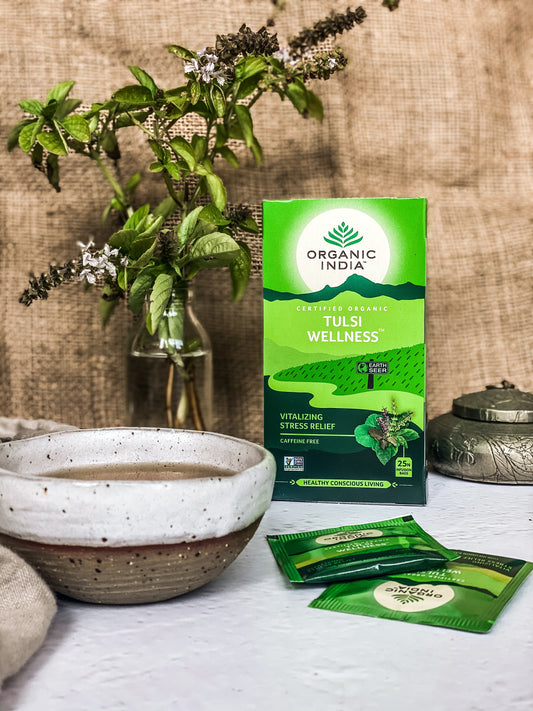The human immune system has been compared to battle armor, a body guard, or your guardian at the gate. Yet these comparisons, although somewhat accurate, fail to do justice to the intricacies, complexity, and tireless nature of this miraculous system.
Unlike battle armor, which is separate from yourself and wears down over time, or a body guard or guardian who may panic and abandon you in your time of need, your immune system is always with you and never stops protecting you.
Despite how we mistreat it (consciously or unconsciously), through poor food choices, stress, lack of exercise, chemical exposure, pollution, lack of sleep, recreational drug use, excess alcohol consumption, exposure to pathogens, overuse or inappropriate use of pharmaceuticals, etc. it never ever forsakes us.
Thus, it is in our best interest to understand how our immune system works so we can consciously support and nourish it in the right ways.
One of the lesser known facts about the immune system is it is not actually one system.
Rather, it is divided into two subsystems known as: the innate immune system—which you’re born with, and the adaptive immune system—which you develop as you’re exposed to germs and other substances over time. These two systems work closely together, and independently, to neutralize any threat that triggers an immune response.
WHAT’S THE DIFFERENCE BETWEEN THE INNATE AND ADAPTIVE IMMUNE SYSTEMS?
Your innate immune system (non-specific) is the only immune system you are born with and is your first line of defense against pathogens and other potentially harmful substances. Since it provides general defense it is considered non-specific. It typically utilizes tools like natural killer cells (NK cells), macrophages, and phagocytes (which consume pathogens) to kill off foreign invaders as they enter the body via access points like your skin, nasal passages, or digestive tract.
Your adaptive immune system (specific) on the other hand is cultivated as you grow up, and is more strategic. It works by making antibodies (T cells and B cells) specific to germs your body has previously come into contact with. This is also known as an acquired/specific immune response.
Here’s where things get really cool. True to its name, your adaptive immune system is constantly learning and adapting so your body can also fight pathogens, like bacteria, viruses, or fungi that change over time. It also stores information on previous disease-causing germs so it can fight them off better next time. You’ve probably experienced this before when you caught some type of virus and got really sick, but when you got it a second or third time your symptoms were much more mild. That’s your adaptive immune system working its magic!
Together, these two subsystems provide your body with the most sophisticated security system possible to keep pathogens from wreaking havoc on more vulnerable organs and systems.

YOUR INNATE AND ADAPTIVE IMMUNE SYSTEMS ARE DEPENDANT UPON MANY OTHER ORGANS AND SYSTEMS
As a whole, your immune system (innate and adaptive) relies on cells that are made in various organs of the body to carry out their functions. Your spleen, adenoids, lymphatic system, bone marrow, Peyer’s Patches, thymus, tonsils, mucous membranes, and gut microbiome all play a role.
Like the adaptive immune system is constantly learning, our understanding of immunity is also ever evolving. For example, two decades ago we had no idea the intricate role that gut health played in building, maintaining, and modulating immunity. And even a decade ago it was barely recognized that things like diet and exercise could impact the immune response.
Thanks to these new discoveries (which Traditional systems, like Ayurveda, have been aware of for centuries), awareness has expanded regarding the impact lifestyle can have on our innate and adaptive immune systems.
HOW TO SUPPORT YOUR INNATE AND ADAPTIVE IMMUNE RESPONSE
Since they are so closely linked, both arms of your immune system will benefit from many of the same things, including getting enough sleep, eating a whole foods diet, avoiding too much sugar or processed food, managing stress, limiting alcohol consumption (which taxes the liver), avoiding antibiotics whenever possible, and spending time in nature.
However, there are some more specific things you can do to support these systems independently and as a whole.
TEND YOUR GUT MICROBIOME
Several studies have shown that healthy gut microbiota play a key role in communication and modulation of the innate and adaptive immune response. However, it appears the gut and the adaptive immune system share a special symbiotic relationship in which gut microbiota help nurture the development of the adaptive immune system. The adaptive immune system returns the favor by helping regulate microbiota composition and providing immunoglobulins which protect the epithelium.
In Ayurveda, we recommend tending your gut microbiome by consuming probiotic-rich foods like yogurt or cultured vegetables, eating in alignment with your primary dosha/body type, and taking digestive-supportive herbs.
KEEP GINGER HANDY
The humble ginger rhizome should be considered your immune system’s best friend. That’s because its active component, gingerol, has been shown to fortify both the innate and adaptive immune response. It’s also excellent for supporting other aspects of your immune system including your lungs, digestive system, and inflammatory response.

SUPPORT YOUR ADAPTIVE IMMUNE RESPONSE WITH TULSI AND ASHWAGANDHA
Research has shown that adaptogens, specifically Ashwagandha, can help empower the adaptive immune system by supporting normal production of natural killer cells. Ayurvedic adaptogens like ashwagandha, tulsi, and amla have been used for centuries to help the body adapt to stress, which is also key for healthy immunity.
MOVEMENT CAN MAKE YOUR INNATE AND ADAPTIVE IMMUNE SYSTEMS MORE EFFICIENT
You may have heard that exercise is good for your immunity, but do you know why? Apart from helping oxygenate your body and normalize weight, blood pressure, etc. it also helps by:
- Reducing stress hormones and strengthening various organs and systems–which benefits overall immunity.
- Causing white blood cells/antibodies to circulate more rapidly, which could help your innate immune system identify and tackle infections sooner.
- Activating the musculoskeletal system which allows the adaptive immune system to activate its T, B, and NK cells.
These are just a few examples of how moderate exercise can help strengthen immunity.

In closing
Our immune systems are up against more stressors (chemicals, foods, drugs, pollution, toxins, pathogens, etc.) than ever before. But, once we understand how our innate and adaptive immune systems function, what bogs them down, and how to offer optimal support and nourishment, we can rest easy in their ability to protect us.
This is mind/body medicine at its best: as we serve our bodies by learning and providing what they need to function and thrive, they’ll serve and protect us in ways we can’t imagine.
In other words: take care of your immune system and it will always take care of you.
Learn about more herbs for immunity and keep healthy year round.












